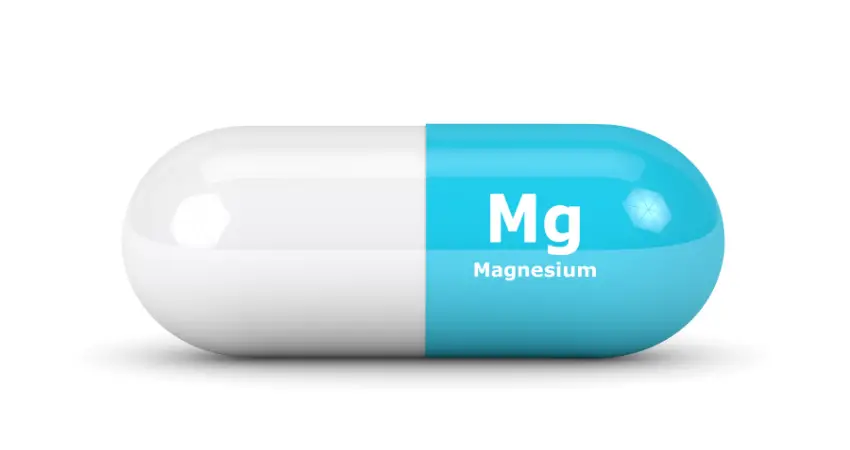Magnesium, an essential mineral, plays a crucial role in maintaining the proper functioning of our bodies.
Its importance lies in its involvement in numerous biological processes that are vital for overall health and well-being.
First and foremost, magnesium is a key player in the structure and function of our bones.
It supports the formation of strong bones, making it essential for growth and development, especially during adolescence.
Moreover, magnesium aids in the regulation of calcium levels, which is essential for muscle function, nerve transmission, and heart health.
Another critical function of magnesium is its involvement in energy production.
It is a cofactor in the process of converting food into energy through cellular respiration.
This means that magnesium is necessary for our cells to produce the energy required for daily activities, from simple tasks to strenuous exercises.
Furthermore, magnesium is crucial for maintaining a healthy cardiovascular system.
It helps to relax blood vessels, ensuring smooth blood flow and reducing the risk of hypertension and heart-related issues.
Additionally, magnesium plays a role in regulating heart rhythm and preventing arrhythmias, which can be life-threatening.
Benefits of Magnesium Supplementation for Ventricular Arrhythmias

Heart failure occurs when the heart is unable to pump blood effectively, leading to a range of complications, including ventricular arrhythmias—abnormal heart rhythms originating in the lower chambers of the heart.
Research has consistently shown that many individuals with heart failure also experience hypomagnesemia, which increases the risk of ventricular arrhythmias.
Cardiovascular Research Magnesium Taurate Review
Are you looking for a breakthrough in your cardiovascular health? Look no further than Cardiovascular Research Ltd’s Magnesium Taurate!
This cutting-edge supplement is revolutionizing the way we approach heart health, offering a unique blend of magnesium and taurine that delivers unparalleled benefits.
With extensive research backing its effectiveness, Magnesium Taurate is quickly becoming the go-to choice for individuals seeking to improve their cardiovascular wellness.
Can PPI’s Cause Low Magnesium?

Yes, proton pump inhibitors (PPIs), which are a type of medication commonly used to treat gastroesophageal reflux disease (GERD) and other acid-related disorders, can cause low magnesium levels in some individuals.
The exact mechanism by which PPIs can cause low magnesium levels is not fully understood, but it is thought to be related to the way these medications affect the body’s ability to absorb magnesium.
Magnesium, Ribose, Carnitine and Coq10 Supplements For the Heart
Ribose is a type of sugar that is produced naturally in the body and is used to make ATP, the primary source of energy for cells.
It is found in high concentrations in the heart and other organs that require a lot of energy.
Ribose supplementation has been shown to improve exercise tolerance and reduce symptoms of angina, a condition characterized by chest pain or discomfort.
Symptoms of Too Much Magnesium

Magnesium is a very important mineral. The average American is deficient in magnesium. Magnesium supplements are very effective.
However, rarely can someone have a magnesium overdose. There are several reasons why someone might have a magnesium overdose.
The Link Between Magnesium, Anxiety and Heart Disease

Anxiety is a common issue faced by many people, and it can be especially concerning for those with heart disease.
Magnesium is a mineral that plays a critical role in many bodily functions, including nerve function and muscle contraction.
It has been shown to have a positive impact on anxiety levels, particularly in heart patients.
In this article, we will explore the benefits of magnesium for heart patients suffering from anxiety and how it can help improve their quality of life.
Which Magnesium is Best for Sleep and Anxiety?

Magnesium is a mineral that is involved in so many body processes. The parts of the brain which are the pituitary and the hypothalamus need magnesium to function. The best time to take magnesium depends on what you are taking it for.
In this article, we will be discussing how it is best to take magnesium at night because we will be discussing magnesium and insomnia. Magnesium has been used for all kinds of health problems.
Conclusion
In conclusion, magnesium stands as a remarkable and indispensable mineral in the realm of health and wellness.
Its extensive involvement in numerous biological processes within our bodies makes it a true powerhouse for maintaining optimal health and addressing various health disorders.
Throughout this comprehensive guide, we have explored the vital roles magnesium plays in our skeletal system, energy production, cardiovascular health, and nervous system function.
We have seen how magnesium contributes to muscle function, mental well-being, and immune system support, leaving no doubt about its significance in promoting overall well-being.
From the prevention of osteoporosis and hypertension to the management of muscle cramps and anxiety, magnesium emerges as a natural and effective ally against a myriad of health disorders.
Its versatility extends beyond treating specific conditions, as it has a beneficial impact on overall health, contributing to enhanced cognitive function, improved sleep patterns, and increased energy levels.
As we conclude this ultimate magnesium guide, it is crucial to recognize the importance of maintaining an adequate intake of this essential mineral.
While magnesium-rich foods like leafy greens, nuts, seeds, and whole grains should be prioritized in our diets, supplementation may be necessary for individuals with certain health conditions or those at risk of deficiency.
However, it is essential to exercise caution and consult with healthcare professionals before initiating any supplementation to ensure safe and effective use.
Moreover, incorporating a well-balanced diet, regular physical activity, and healthy lifestyle choices can further optimize magnesium’s benefits.
My name is Phyllis Robinson MSN, RN. I have been a Registered Nurse for 27 years in the Cardiac Intensive Care Unit. I am passionate about cardiac care and heart disease. I also want this blog to be an educational tool that people can refer to for traditional and alternative treatment. I will blog on heart disorders such as high blood pressure, congestive heart failure, cardiomyopathy, and high cholesterol.
I received my Nursing degree from Baltimore Community College.
I went on to receive my Masters in Nursing from Walden University
I have worked for almost 30 years in Critical Care with a focus on heart health. I am an advocate of preventive healthcare.

